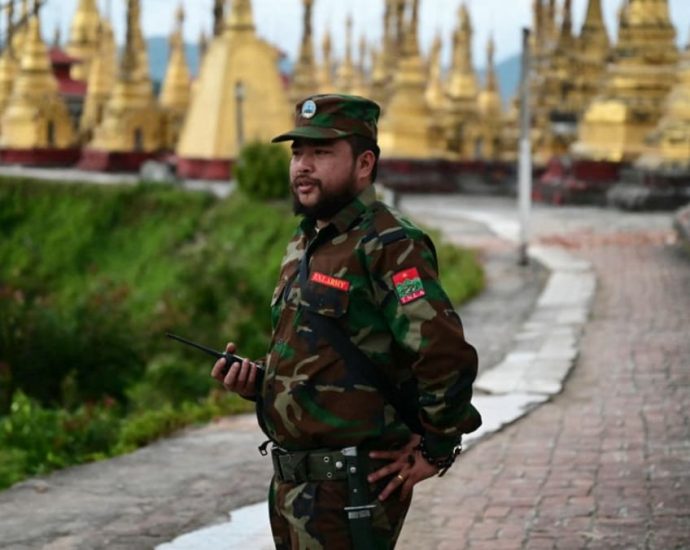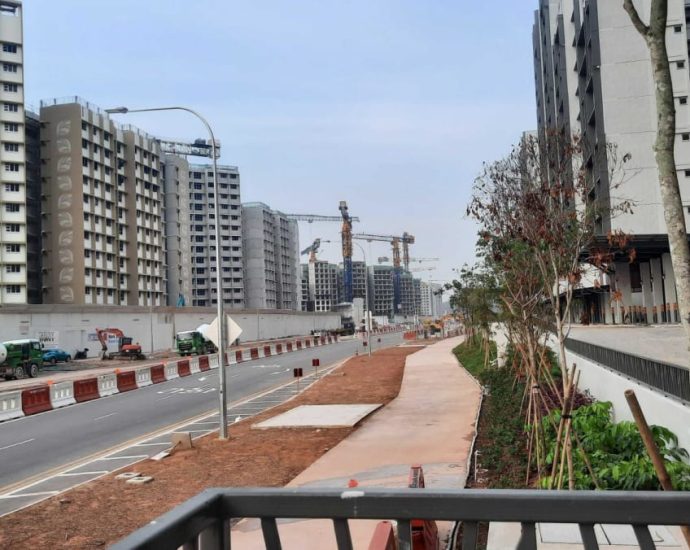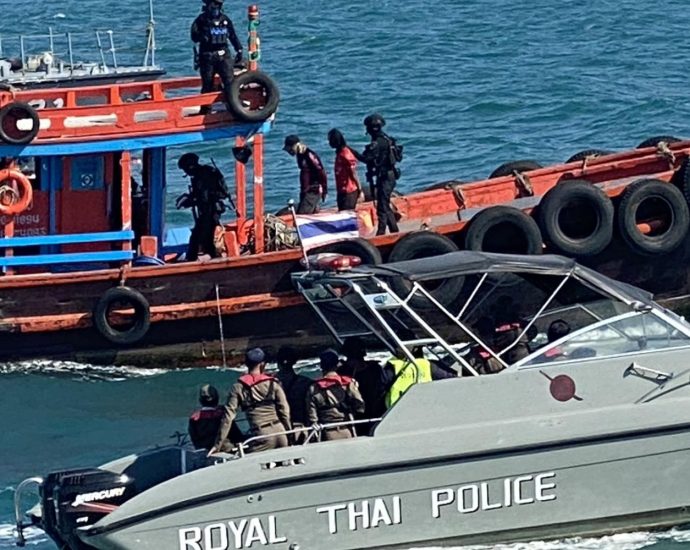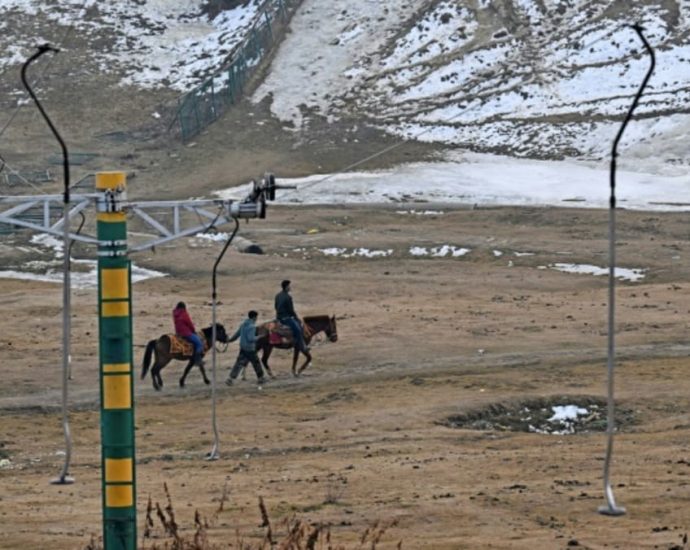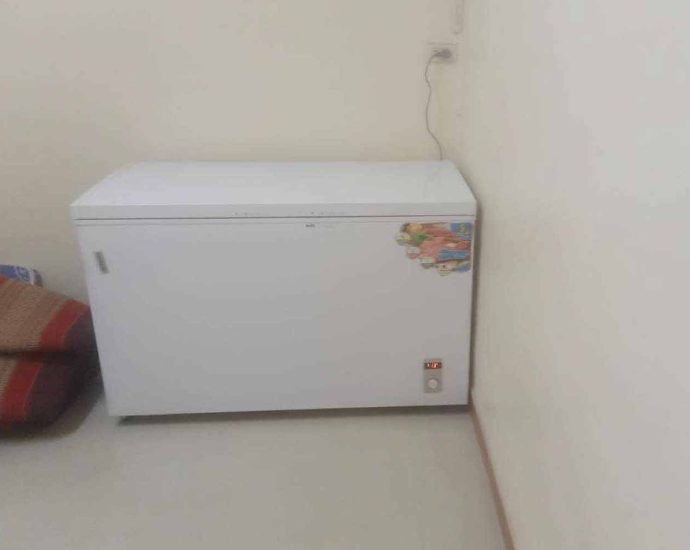Six-point plan for a better region
US expert lays out sustainability path
PUBLISHED : 22 Jan 2024 at 05:14
Countries in the region must improve education, healthcare, energy transformation, agriculture, urban infrastructure and digital platforms to achieve sustainability, according to a US expert.
“Asean countries are already in a better position. Not only because you are in one of the fastest-growing regions in the world, but you are also equipped with clean energy sources and have the know-how, technology and human capacity to achieve sustainability,” Jeffrey D Sachs, a professor at Columbia University and director of the UN Sustainable Development Solution Network, told a convention in Bangkok.
However, a detailed plan of what needs to be done must be constructed first, he said. It should begin with investing in quality education. “A well-educated younger generation would become a resource for quality manpower which would attract foreign investors,” he said.
Countries should also focus on improving their healthcare system because physical and mental wellbeing are crucial to productivity, he said. Asean nations need to invest in energy transformation, he said.
Using clean energy and gearing towards a zero-carbon economy are needed, especially with the increasing severity of global warming, natural disasters and food shortages. “Then, you have to invest in sustainable agriculture as the current agricultural industry is facing challenges from intensified water cycles, climate pressure and new pests,” he said.
He said countries must have a new agricultural strategy that is sustainable and also capital-intensive, technology-intensive and information-intensive. He also noted the importance of investing in urban infrastructure, such as public transport, social housing and green areas.
Lastly, digital platforms and transformation are needed because they are powerful tools which countries need at their disposal. When the plans are in place, a list of agencies responsible, sources of investment and a project timeline will also need to be crafted.
“My advice is do not just do this with Thailand but do it with Asean. You can even do it with the Regional Comprehensive Economic Partnership countries because all of the Asia Pacific will benefit tremendously.
“It is necessary to change the mindset that there are no natural enemies in this world. The US is no longer a hegemony and China is not the new world hegemony.
“We have passed the hegemonic period already. We need cool heads. If we cooperate, we will be able to build the future we want,” he added.

Sachs: Cool heads needed
The Big Read: Growing calls to regulate car-sharing, amid rising complaints of hefty repair costs and poor service
Users can also contact Tribecar via reports made through the app, emails and social media channels. If there are cleanliness issues, Mr Yong pointed out that users may also take the vehicle for cleaning, and the company would reimburse the cleaning fees and offer free rental hours as a “reward”.Continue Reading
Commentary: Three years on from the coup, Myanmarâs civil war looks headed for a fourth year
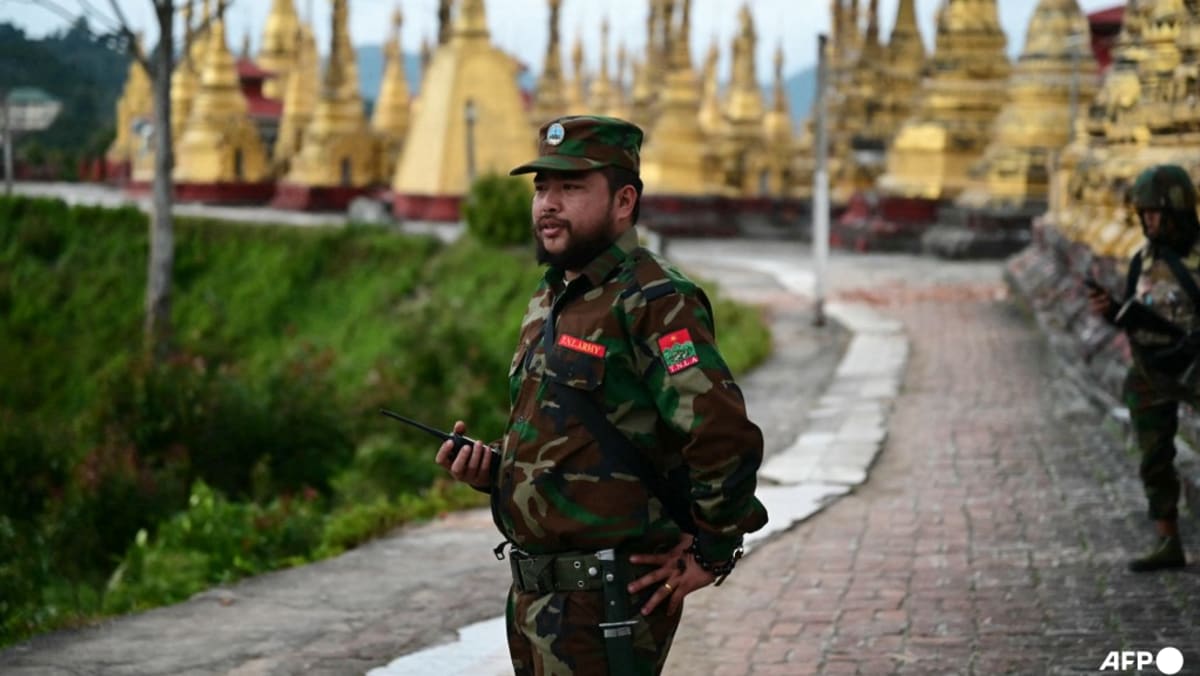
NO FOREIGN GOVERNMENT WANTS TO BECOME DIRECTLY INVOLVED
Not only activists, but even some experienced observers have advocated such measures, including the provision of lethal aid to the NUG. They have argued that, should these ideas get picked up by governments, the opposition movement would be in a good position to consolidate its recent gains and make further advances against the junta.
For various reasons, however, few if any of these recommendations are likely to be accepted.
To date, the international community has made some helpful gestures but it has kept the civil war, and the opposition movement, at arm’s length. It has refused to recognise the NUG, or to establish direct contact with Myanmar’s many ethnic armed organisations. Foreign governments and international organisations have also baulked at providing aid to the opposition movement, particularly across national boundaries.
In explaining this approach, officials have invariably cited customary diplomatic practice and sovereignty issues, but it is plain that there is also a strong element of self-interest. Whether or not they believe in the opposition cause, or simply fear the historical durability of Myanmar’s military regimes, it is clear that no foreign government wants to become directly involved.
The conflict appears to offer a clear choice, between those forces repressing the Myanmar people and those fighting for a more open, humane and democratic system. However, the conflict is a very complex one, loaded with the kind of ambiguities and contradictions that policymakers hate.
Besides, external involvement in the civil war would not guarantee an acceptable final outcome.
Commentary: Is the financial payoff worth the inconvenience of living in non-mature estates like Tengah?
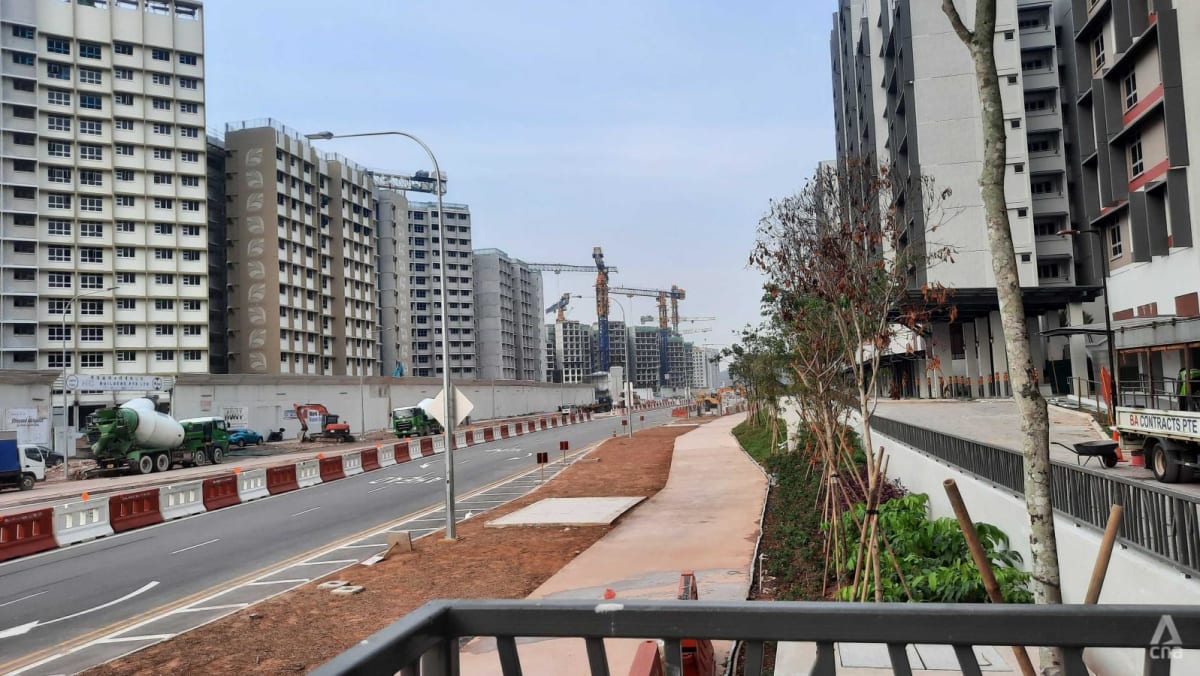
POTENTIAL FINANCIAL GAINS
On the other hand, the benefit of buying a BTO flat in new estates like Tengah is that homeowners may see capital appreciation in the years to come. Buyers would be willing to pay more for the improved accessibility and amenities.
First-time buyers who bought a BTO flat in non-mature estates like Punggol and Sengkang have profited significantly from selling their house in the resale market after both towns became more built up.
When BTO flats in Punggol and Sengkang were first launched in the early 2000s, the price of four-room flats ranged from S$129,000 to S$205,000.
These owners saw the value of their homes tripling when they sold a decade later, with resale prices ranging from S$356,000 to S$650,000.
So Tengah residents willing to ride out daily inconveniences could enjoy a financial pay-off years later. Across the 18 BTO projects in Tengah, the median prices of four-room flats were below S$355,000, while five-room flats ranged between S$430,000 to S$485,000.
HDB resale prices have seen robust growth, though cooling measures implemented in recent years have moderated rates of increase. Should this trend continue, Tengah homeowners can expect to resell their flats at a profit in the next decade, barring unforeseen circumstances.
In this sense, BTO flats in non-mature estates can make a sound investment. Homeowners can enjoy first-mover advantage by reselling their flats once the town matures and their minimum occupation period (MOP) is complete.
But if your aim is not to flip your BTO for a profit, then these inconveniences may not be worth your while. If your finances permit, then you may be better off purchasing a smaller resale flat in a mature estate instead.
Marine chief rides wave of success

Pol Maj Gen Phruttiphong Nuchanart, the new chief of Marine Police Division, has made an impressive start in drawing public attention to the usually low-profile unit and its essential role in countering criminal activities and maritime threats in Thai waters.
Following his appointment in October last year, Pol Maj Gen Phruttiphong oversaw operations leading to the confiscation of more than 23 million litres of duty-free diesel fuel and a whopping two tonnes of crystal methamphetamine in just three months.
In November, marine police seized more than 23 million litres of diesel fuel in a crackdown on the smuggling of duty-free diesel fuel reserved for registered fishing boats. The fines for transporting and unloading goods without customs permission reportedly amounted to 2.7 billion baht.
The following month, in December, acting on information about a drug smuggling operation, marine and narcotics suppression police intercepted 90 cardboard boxes containing two tonnes of crystal meth during a search on a tugboat at a pier in Bang Pakong district of Chachoengsao.
The illicit drugs, which were compressed and hidden in bags of dried fruit, were destined for the Philippines, Australia and other countries.
Thirteen suspects, all Thais, were rounded up in the raid.
The division also conducted a major drill in late December on the island of Koh Lan, in Chon Buri, involving a mock drug trafficking bust, search and rescue operations and coordination with local authorities to ensure tourist safety.
Sailing to prominence
Thanks to their success in curbing drug and fuel smuggling, coupled with a proactive approach to preventing crime, the marine police have risen to prominence within the Central Investigation Bureau (CIB).
Pol Maj Gen Phruttiphong said the division, which is responsible for policing Thai coastal waters and ports, has always played an active role in disrupting the supply chain of illegal drug production and distribution.
Usually manufactured along the Thai-Myanmar border, these illegal substances need to be transported through ports to reach other countries where they are then sold to buyers.
“The division plays a crucial role in intercepting drugs at sea and along the Mekong River before they reach their destination,” he said.
Tougher stance on fuel
Meanwhile, in line with the CIB and government efforts to take a tougher stance on the smuggling of untaxed fuel, an operation centre has been set up and more funds are being sought by the division to assist with the crackdown.
Pol Maj Gen Phruttiphong said marine police also have a special taskforce known as Matchanu, named after a character from the Ramakien, to support its core and special missions.
The name of the taskforce is not a random choice, but a deliberate one to reflect its capabilities on both the land and in the water, much like the figure of Matchanu himself, who is a son of Hanuman.
The taskforce is engaged in a wide range of marine operations from searching wrecks for evidence, to providing security to VIPs and responding to emergencies.
Pol Maj Gen Phruttiphong said searching for evidence underwater requires special skills and equipment and marine police work in this area is critical to solving almost every crime.
Given the country’s extensive coastline, his unit is prepared to respond to emergencies at sea and they have assisted victims in recent boat accidents in Chon Buri and Phangnga, he added.
The division has 1,600 officers with 200 patrol boats for its multifaceted role, he said.
Wealth of experience
Pol Maj Gen Phruttiphong had a diverse career in the police before being appointed marine police commander. He also has a law degree and has passed the Thai bar exam.
On first joining the force, Pol Maj Gen Phruttiphong worked as an interrogator for the Tourism Division.
He served as a tourist police inspector in Hua Hin of Prachuap Khiri Khan province, a superintendent at Wangsomboon station in Sa Kaeo, and commander of the anti-corruption police among others.
After a two-year stint in the strife-torn deep South, he joined the Highway Police Division where he supervised the implementation of new technology to identify speeding vehicles and in October last year he was appointed to head the marine police.
Pol Maj Gen Phruttiphong grew up in a police family and spent much of his childhood around the Police Academy.
His father, Pol Lt Gen Sunthorn, is a former commissioner of the academy.
His older brother, Pol Maj Gen Panthana, is a deputy commissioner of the Immigration Bureau and his younger brother, Pol Col Pongpan, is deputy commander of the Communication Division under the Office of Information and Communication Technology.
A member of Class 34 of the armed forces preparatory school and Class 50 of the Police Academy, his classmates include assistant to national police chief Pol Lt Gen Samran Nuanma, deputy commissioner of Narcotics Suppression Bureau Pol Lt Gen Somboon Thiankhao and CIB commissioner Pol Lt Gen Jirabhop Bhuridej who nominated him for the new job.
Pol Maj Gen Phruttiphong said that while the marine police division is lesser known, it has worked closely with domestic and international agencies which has helped enhance its ability to tackle often complex cross-border crimes.
He wants this specialised unit to be well-rounded in all aspects of criminal investigation, tactical work and legal affairs.
On international collaboration, he has been invited to visit neighbouring countries to give talks on the unit’s work and regional issues.
“Although maritime security threats like terrorist acts are rare, collaboration and information sharing are essential.
“The division is also developing communication channels and tools to enable us to better prevent and respond to threats,” he said.

Phruttiphong: High-flying boss
Teacher assault prompts call for return of janitors

PUBLISHED : 22 Jan 2024 at 04:30
The Office of the Basic Education Commission (Obec) is seeking cabinet approval for its request to allow the rehiring of school janitors to ease teachers’ burdens and allow them to focus on the core responsibilities of teaching.
Obec secretary-general Sub Lt Thanu Wongchinda was speaking in the wake of an assault on a primary school teacher at Bang Pong Klua School in Chiang Rai’s Muang district on Saturday.
Sub Lt Thanu said the attack highlighted the vulnerability of teachers and underscored the necessity of Obec’s proposal to rehire more than 14,000 school janitors nationwide.
Under a 1999 cabinet resolution, he said, government offices, including schools, are required to provide security measures to safeguard their premises.
In line with this, teachers are required to be on duty outside school hours to ensure schools are properly monitored, after school janitors were phased out a few years ago.
He said the proposal aims to free up teachers from non-core tasks so they can teach and mentor students full-time. Obec oversees 29,251 schools nationwide.
While the request is pending cabinet consideration, schools are advised to seek assistance from local administrators and communities to maintain safety without using teachers’ time, he added.
Obec has submitted a letter to the Interior Ministry asking it to provide necessary support. The Education Minister has instructed Obec to follow up on the incident and mete out measures to maintain safe and secure school environments.
The teacher’s condition is improving and a team of experts including a mental health specialist has been sent to assess her, he said.
A 38-year-old man was held in connection with the attack. He was charged on Sunday with several offences including aggravated assault using a knife.
DNP follows up on newly found prints
PUBLISHED : 22 Jan 2024 at 04:30

The Department of National Parks, Wildlife and Plant Conservation (DNP) has launched a study into the movements of tigers whose footprints were sighted in Chumphon and which may have roamed back and forth between Thai and Myanmar forests.
DNP director-general Athapol Charoenshunsa on Sunday said the footprints of the tigers were reported by a wildlife sanctuary based in the province, which found them in a forest in tambon Song Phi Nong of Tha Sae district.
He said he was informed of the discovery of the footprints on Friday.
He said his officers did not confirm whether the newly found prints belonged to three tigers recently captured on cameras under a survey project between the DNP and Freeland Foundation in the Tanao Si mountain range, which is part of Thailand and Myanmar.
Twenty-four cameras were installed in the area, and based on the analysis, three distinct tigers were identified based on the unique pattern of their stripes, he said.
“It is believed the animals are roaming back and forth between Thai and Myanmar forests, so the Wildlife Conservation Office has been assigned to carry out a study to find out how long these tigers have crossed the boundaries and if they are already included in the country’s tiger population,” he said.
The discovery was reported to the Minister of Natural Resources and Environment, Pol Gen Phatcharavat Wongsuwan, who ordered the DNP to survey the tiger population, he added.
Using smart patrol technology and special analysis techniques, the current number of wild tigers in Thailand is estimated to be about 148–189, an increase from 130–160 in 2020. Cameras are deployed at more than 1,000 locations in 28 wildlife reserve areas.
Based on the study, tigers are mostly found in Thungyai Naresuan and Huai Kha Khaeng wildlife sanctuaries covering the provinces of Uthai Thani, Kanchanaburi and Tak, with the number estimated to be 103–131.
The increase in the population indicates the fertility and diversity of the country’s forests. It has prompted the government to endorse a plan for tiger conservation until 2034.
Global Collaboration Village leverages XR technology to advance impactful dialogue at Davos 2024
Potential of XR to facilitate deep engagement beyond video conferencing
Powerful demonstration of how immersive tech can bring leaders together
Participants at the recently concluded World Economic Forum (WEF) 2024 engaged throughout the week at the virtual Global Collaboration Village, a purpose-driven platform powered by next-generation technology to shape global dialogue said WEF…Continue Reading
India’s Kashmir ski industry melts as temperatures rise
A lone helicopter waits for the few tourists who have still come, offering flights over higher peaks that have a dusting of snow. “Our guests are mainly skiers, and they have all cancelled their bookings,” said hotel manager Hamid Masoodi. “Those who come despite no snow are also disappointed.” SkiContinue Reading
Man’s dismembered body parts found in freezer
PUBLISHED : 21 Jan 2024 at 17:51

The dismembered body parts of a man have been found in a freezer in a rented room in Bangkok’s Bang Khunthian district.
Police at the Samae Dam station were alerted to the discovery in a commercial building in the southernmost district of Bangkok on Sunday.
Police and rescue workers found a white freezer on the fourth floor of the building. Inside were a man’s legs. There were bloodstains in the room and a bathroom, and a chainsaw was found under a bed.
Investigators were checking CCTV footage in the area and its vicinity to identify suspects.
At the scene, a Myanmar man said he and five compatriots visited the building on Friday. An Indian man occupied and used the room as a job placement office, he said.
Five of them were later brought to work elsewhere, the Myanmar man continued. The other one – identified only as Yao – remained at the building, and friends lost contact with him on Saturday.
The Myanmar national returned to the building on Sunday. He phoned the owner of the building, who told him him to break into the property. It was then that he made the gruesome discovery and called police.



